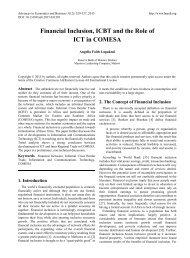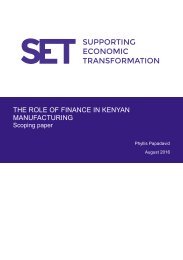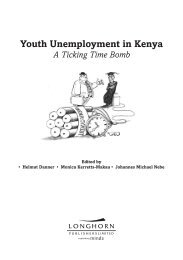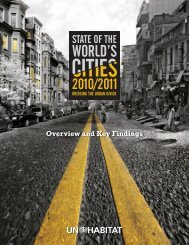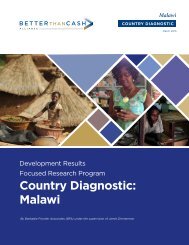FD
gvti301SEaf
gvti301SEaf
You also want an ePaper? Increase the reach of your titles
YUMPU automatically turns print PDFs into web optimized ePapers that Google loves.
BOOK REVIEWS<br />
Money, It's a Hit<br />
William N. Goetzmann<br />
Money Changes Everything<br />
How Finance Made Civilization<br />
Possible<br />
Princeton University Press, Princeton, New<br />
Jersey, 2016, 600 pp., $35.00 (cloth).<br />
A<br />
five-year 3.78 percent loan<br />
between two businessmen<br />
in 1796 may not seem<br />
remarkable, but it turns out that’s<br />
1796 BCE, and the businessmen<br />
lived in the ancient Sumerian city<br />
of Ur. William N. Goetzmann’s<br />
sprawling Money Changes Everything<br />
spans ancient Mesopotamia to<br />
20th century America, China, and<br />
Europe, with excursions through<br />
classical Greece and Rome, ancient<br />
and imperial China, and centers of<br />
financial innovation in medieval and<br />
Renaissance Europe.<br />
Goetzmann aims to show the enabling<br />
role finance played in the development<br />
of human society, culture,<br />
and knowledge. His core thesis is that<br />
financial innovations through the<br />
ages have overridingly had a civilizing<br />
influence. Today, when financiers are<br />
so often seen as malign influences,<br />
such a view may seem contentious,<br />
but Goetzmann makes a strong case.<br />
His method of persuasion is to deluge<br />
the reader with a wealth of historical<br />
detail. The sheer density can<br />
overwhelm at times, but he leavens<br />
his account with fascinating historical<br />
episodes and characters and personal<br />
tales of discovery (for example, his<br />
role in unearthing the 1372 founding<br />
charter of the Honor del Bazacle in<br />
Toulouse, France—a corporation that<br />
survived into the 20th century).<br />
The book starts in the Mesopotamian<br />
city of Uruk, where markings<br />
on clay tokens that served as financial<br />
records evolved into cuneiform,<br />
one of the earliest forms of writing.<br />
Early financial innovations influenced<br />
humanity’s concept of time. A<br />
360-day Sumerian calendar did not<br />
correspond in any way to astronomical<br />
time, but 360 is a number divisible<br />
into many whole numbers, ideal<br />
for parceling time into even ratios<br />
convenient for financial contracts.<br />
(In fact, the 360-day year is still used<br />
in calculating modern-day bond<br />
interest accruals.)<br />
Conceptions of time in medieval<br />
financial contracts may have<br />
been a counterpoint to ecclesiastical<br />
notions, contributing to a clash<br />
between the church and commercial<br />
society. Arm’s-length financial transactions—and<br />
therefore a level of<br />
trust in a financial system that could<br />
substitute for the personal relationships<br />
that prevailed in traditional<br />
societies—were critical to increasing<br />
population densities.<br />
Finance fostered the<br />
capacity for abstract<br />
thought.<br />
Finance also fostered the capacity<br />
for abstract thought. Most students of<br />
finance recognize its role in the development<br />
of mathematics and probability<br />
theory, but Goetzmann also points<br />
out the degree of abstraction needed to<br />
understand, for example, the concept<br />
of financial claims as a form of nonphysical<br />
wealth that had to be tracked<br />
through accounting entries.<br />
Such an all-encompassing tableau<br />
frequently delivers the jolting shock<br />
of familiarity that is one of the great<br />
pleasures of reading history. For<br />
example, in the Mesopotamian city<br />
of Dilmun, ordinary citizens could<br />
participate passively in ventures by<br />
contributing capital of a bracelet,<br />
much as a modern household might<br />
buy a share or two of Google stock.<br />
Thirteenth century Venetians eagerly<br />
bought prestiti, the first true government<br />
bonds. Such financial inclusion<br />
gave people passive, liquid stakes in<br />
diversified income-generating activities<br />
that could provide a measure of<br />
economic security, as well as a stake<br />
in the state’s economic expansion.<br />
The book also explores how financial<br />
markets continually found ways<br />
to liquefy apparently illiquid assets.<br />
The records of a 7th century Chinese<br />
pawnshop reveal that just about<br />
anything with resale value could be<br />
used as security for a loan; in the<br />
15th century, a speculative futures<br />
market developed in the dividends<br />
of the Casa di San Giorgio, an entity<br />
formed to handle the finances of the<br />
city of Genoa.<br />
The development of corporate<br />
structures gets an in-depth look, in<br />
particular the importance of liquid,<br />
limited-liability claims in fostering<br />
necessary risk taking and of the<br />
development of public finance (the<br />
Genoese government was financed<br />
through equity-like instruments<br />
long before the development of<br />
modern-day GDP- and commodityprice-linked<br />
bonds). Coinage (for<br />
example, in Greece and Rome) and<br />
paper money (in China) are shown<br />
to be solutions to specific problems <br />
at specific times.<br />
Goetzmann does not ignore<br />
the dark side of finance, including<br />
financial crises in ancient Rome (33<br />
CE) and the more familiar tales of the<br />
South Sea and Mississippi bubbles<br />
of the 18th century. He attributes<br />
the bursting of financial bubbles as<br />
frequently to government intervention<br />
(for example, the Bubble Act of<br />
1720) as to irrational behavior among<br />
overleveraged investors.<br />
A remarkable work of synthesis<br />
and scholarship, the book affords a<br />
deep perspective to anyone trying to<br />
grapple with current problems in the<br />
role of finance and financial regulation<br />
in a civilized society.<br />
Elie Canetti<br />
Advisor,<br />
IMF Western Hemisphere Department<br />
Finance & Development June 2016 55




